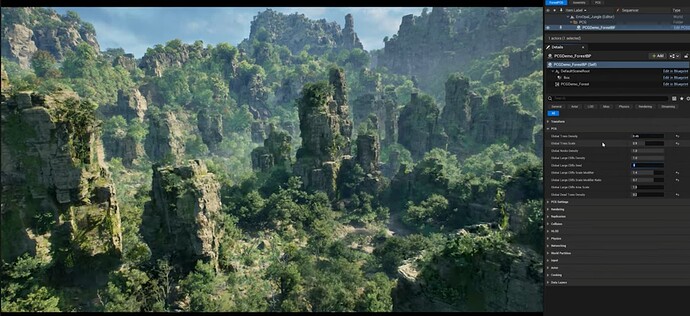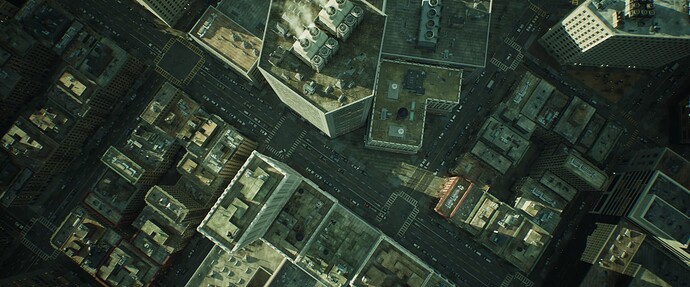There are already ‘sandbox’ games like ‘No Man’s Sky’ that have been around for a few years. It’s an exploration game, where you fly through galaxies (that are procedurally generated) and when you choose a random planet, it is randomly generated and filled with its own unique flora, fauna, and minerals. But they’ve come a long way in terms of photorealism since then, here’s where Unreal Engine is at with their procedural environs.
Procedurally generated city:
I think the recent progress in LLMs (large language models) will allow game designers to combine procedural graphics and AI-driven NPCs with role-playing games (RPGs). So imagine being part of an ongoing, immersive story, where there is a crafted storyline, but everything around you is built in real-time.
My prediction (or maybe it’s a bit of ‘wishcasting’) is that over the next few years, RPGs will evolve to have an overarching storyline filled with adventures and mysteries, but you’ll have an infinite number of different paths to explore, much like choosing to go by highway, off-road or by plane, or by foot or anything you can imagine metaphorically speaking.
Picture yourself as a character on a quest, like a lone character searching for a long-lost sibling. You’ll meet other characters who will provide clues and engage in meaningful conversations, driven by natural language processing. You won’t be limited to typing or selecting pre-written questions; you’ll be able to speak through your microphone and the game (and game characters) will understand you and respond in kind.
Imagine landing on a procedurally generated planet, travelling to a procedurally generated city and walking into a virtual bar filled with procedurally generated elements. Everything from the door handle to the the dim lighting to the strangely organic furniture will be created as you enter, with characters that are also generated to fit the story. The conversation won’t be scripted; it will flow naturally, guided by AI.
This means every game will be a unique experience. There will be unlimited scenarios playing out in endless places, all guided by a framework that keeps you on track with the storyline.
That’s where I think gaming is headed. Ever-expanding immersive universes wrapped around great story-telling, shaped in real-time by players’ choices. 
![]()

